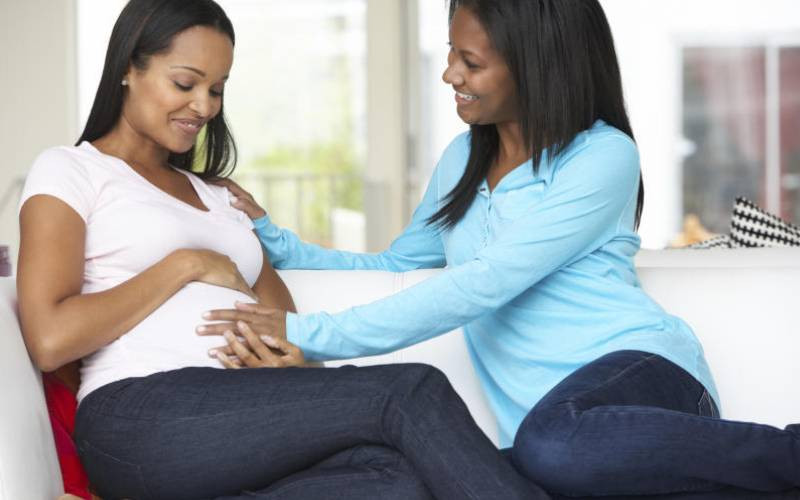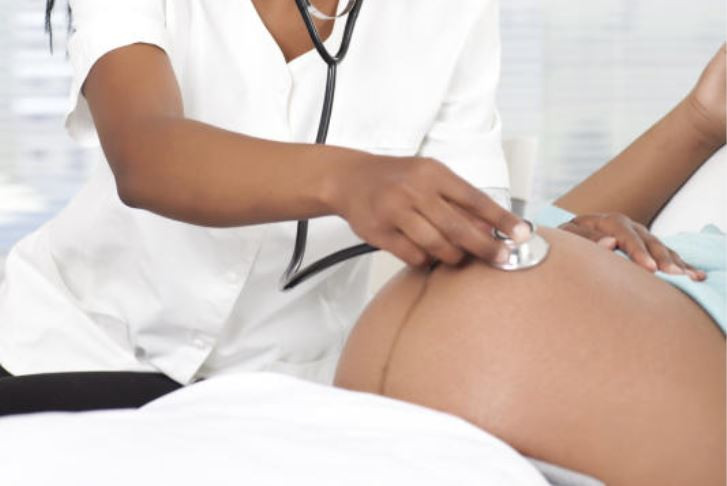
1 Try to keep your cool
Sperm develops best in cool surroundings. Men who sit with computers on their laps can have reduced fertility levels.
Men should also avoid long, hot baths. One study found that switching to cool showers increases sperm production by five times. Also swap tight pants for roomier boxer shorts.
2 Be a cleaning queen
Women who do the housework, gardening or other forms of moderate exercise are three times more likely to conceive through IVF than those with sedentary lives, according to research by the University of North Carolina in the US.
Exercise stops the body producing excessive insulin, which is thought to harm development of healthy eggs.
3 Soak up the sunshine
Sunlight boosts fertility in both men and women by increasing levels of vitamin D. The Medical University of Graz in Austria found vitamin D increases levels of the female sex hormones progesterone and oestrogen, which regulate periods and make conception more likely. It also boosts sperm count.
4 Take time to relax
“Stress can have a huge impact on female fertility,” says consultant gynaecologist Michael Dooley. “It can also slow male sperm production and lower libido.”
5 Eat more dairy
Women who eat one serving of full-fat dairy a day reduce their risk of infertility by more than a quarter, a Harvard University study in America found. Dairy fat helps the ovaries work well.
6 Try popping a multivitamin
Research at the Royal Free Hospital, London, showed taking a daily prenatal vitamin – containing key nutrients for conception like folic acid, vitamin B12 and selenium – could more than double pregnancy chances.
7 Stub out the ciggies
Male smokers are 50% more likely to be impotent and have lower sperm counts. Female smokers have a 30% lower fertility rate than non-smokers. Smoking can also prevent an embryo implanting in the uterus.
8 Think before drinking
If you’re trying to get pregnant, it’s a good idea for you and your partner to drink less alcohol. Drinking too much has been found to impair ovulation and sperm production.
9 Use a phone app
Free apps like Period Diary, Fertility Friend and Menstrual Calendar work out when you’re at your most fertile from your daily body temperature and the dates of your period.
10 Get the point
Try acupuncture to stimulate specific points on the body. It’s thought it may help control ovulation and increase blood flow to the uterus, and therefore improve the chances of a fertilised egg implanting.
11 Have sex!
Chances of conception rise from 15% for couples having sex once a week to 50% for couples having sex three to four times a week. Sex keeps sperm healthy. Its quality falls if it’s retained in the body for more than three days.
12 Know your window
For baby success, you need to have sex during your most fertile time of the month. In an average 28-day cycle, this usually falls between day 10 and day 17.
13 Lose weight
Body fat produces oestrogen, which confuses the body’s ovulation cycle. Overweight women often have less regular periods than women who weigh less. Losing just 5% of your body weight can boost conception chances by about a fifth.
14 But don’t get skinny
Being underweight can switch off your body’s ability to reproduce eggs, as it senses there isn’t enough fat to sustain a healthy pregnancy.
15 Cut down on carbs
Some experts believe a diet high in refined carbohydrates, like white bread, pasta and biscuits, can affect conception. These foods raise blood sugar quickly, causing an insulin surge that can impair fertility.
16 Say no to drugs
Recreational drugs, such as cocaine and marijuana, have been found to lower sperm counts and increase abnormal sperm, while female drug users can face ovulation problems.
17 Eat more oily fish
Some studies show omega-3s, which are found in oily fish, such as salmon and in linseed, may reduce risk of miscarriage and improve sperm quality. Nutritionist Marilyn Glenville says: “These essential fats are crucial for healthy hormone functioning, but many of us don’t get enough.”
18 Kick the caffeine
Research has shown that just one cup of coffee per day could halve your chances of conception. Experts say caffeine may reduce the activity of the Fallopian tube muscles, which carry the eggs from the ovaries.
19 Cut out painkillers
Some over-the-counter pills, such as paracetamol and ibuprofen, can affect conception if taken around the time of ovulation. They may suppress hormones called prostaglandins, which help release eggs into the Fallopian tube.
20 Drink more water
Fertility expert Zita West says: “If you don’t drink enough water, the reproductive system will lose out as the body ensures that the more vital organs receive what they need first.”
Water creates plump egg follicles and a strong blood supply to the womb lining. Plus, if you’re dehydrated, your cervical fluid – the stuff that helps the sperm find the egg – will be sluggish
 The Standard Group Plc is a multi-media organization with investments in media platforms spanning newspaper print
operations, television, radio broadcasting, digital and online services. The Standard Group is recognized as a
leading multi-media house in Kenya with a key influence in matters of national and international interest.
The Standard Group Plc is a multi-media organization with investments in media platforms spanning newspaper print
operations, television, radio broadcasting, digital and online services. The Standard Group is recognized as a
leading multi-media house in Kenya with a key influence in matters of national and international interest.



